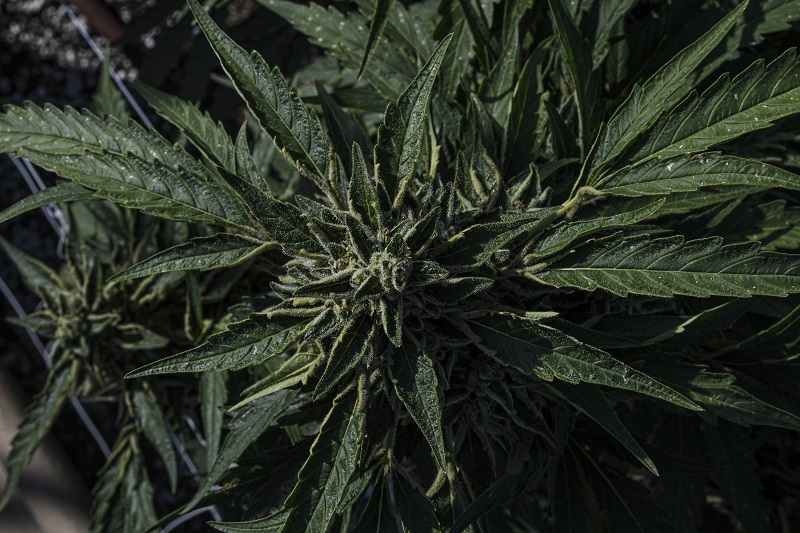Yes on 4′ ballot campaign launches push to legalize marijuana in Md.

If voters support the measure, Maryland will become the 20th state to legalize adult use of marijuana.
16:54 JST, September 9, 2022
An industry-backed campaign to legalize recreational marijuana in Maryland launched Thursday, urging voters to pick “yes on 4,” the November ballot question about legalizing pot possession for adults 21 and over.
If the referendum passes, Marylanders who are at least 21 years old will be able to legally possess up to 1.5 ounces of cannabis and grow two marijuana plants out of the public view, beginning July 1, 2023. Under legislation approved by state lawmakers earlier this year, the sale of marijuana remains a crime.
The campaign, which began with a website and video urging voters to support legalization, relies on funding from Trulieve, according to election finance filings dated Aug. 30. The company – an industry giant with dispensaries in eight states, including three medical locations in Maryland – is listed as giving $50,000 to the cause. The only other donor, Blended Public Affairs, gave $100.
If voters support the measure, Maryland will become the 20th state to legalize adult use of the substance. In the region, D.C. legalized use in 2014 and Virginia did so in 2021.
“Legalizing cannabis would stimulate Maryland’s economy and create tens of thousands of good-paying jobs, while allowing Maryland residents to benefit from vital investments in education, public health, and public safety funded by cannabis taxes,” the initiative’s chairman, cannabis advocate and former Ravens player Eugene Monroe, said in a statement.
Maryland joins a growing number of states that have committed to use any legalization push to address the disparate effects of the war on drugs. Although White and Black people use marijuana at similar rates, Black people have been arrested at 3.64 times the rate of White people nationally for having marijuana, according to an American Civil Liberties Union review of charges between 2010 and 2018.
According to the ACLU study, Maryland was home to three of the top 10 counties with the highest rates of marijuana possession arrests in the country. The “Yes on 4” campaign argues that cannabis convictions have lasting effects that can make it more difficult to find employment, education and housing.
“Passing Question 4 will put an end to the failed criminalization of cannabis, create a well-regulated legal marijuana market centered around equity, and open up new doors for local entrepreneurs and small business owners,” Monroe said in the statement.
The campaign also touted projections in a release from the nonprofit Tax Foundation, which in 2021 estimated Maryland could see $135 million in tax revenue from legalizing marijuana over a three-year period.
During the 2022 state legislative session, Republicans accused Democrats of using the ballot measure as a political maneuver to draw voters to the polls in November as they try to reclaim the governor’s mansion for the first time in eight years.
The state launched its medical marijuana program in 2017, which has generated more than $348 million in retail sales so far in 2022. But Maryland legislators also received criticism for the rollout of the program, which initially awarded no licenses to Black business owners.
Shortcomings in the medical program’s equity sparked debate during this year’s legislative session, with some lawmakers and activists arguing that the framework wouldn’t be enough to address the long-standing disparities of marijuana law enforcement.
Under the bill passed by the General Assembly, if the referendum passes the state will conduct a study of the impact of marijuana on public health and a disparities study looking at the business market and what might be needed to help woman- and minority-owned businesses enter the industry.
It will also allow people who were arrested for marijuana possession to have their records expunged, and others serving time for simple possession could get their sentences reconsidered.
The law would also create a cannabis business assistance fund; a cannabis public health fund to study, among other things, mitigating youth use and to pay for public health campaigns; and a community reinvestment and repair fund, requiring at least 30 percent of the revenue from adult-use cannabis to go to those communities.
Election Day is Nov. 8 and polls open for early voting beginning Oct. 27. In addition the legalization question, voters will answer four other constitutional amendment questions. Marylanders will also select the next governor and a host of other congressional, state and local offices.





